
ON AN EXTINCT VOLCANO in western Java, five artificial terraces are cut into a promontory known as Gunung Padang, or Mountain of Enlightenment. The terraces are buttressed with stone retaining walls nd can be reached for the valley below via a staircase made up of 370 stone steps. Each terrace is covered with rectangular megalithic structures composed of hundreds of prismatic andesite blocks that geologists call columnar joints. These are igneous stones that owe their shape to repeated heating and cooling when the volcano was active millions of years in the past. Scholars believe that, centuries ago, the ancestors of today's local Sundanese people conducted sacred rituals on these terraces. The lowest and largest terrace, Terrace 1, features a five-foot-long andesite block that makes a loud, deep sound when struck. The Sundanese call it a batu kecapi, or "stone lute." From Terrace 5, the highest and smallest of the terraces, one can take in a spectacular vista that includes two nearby volcanic mountains. Gunung Padang draws local Muslims who read the Koran aloud amid the stones and Hindus from the island of Bali who climb the mountain's steps to conduct rituals related to the rising of the full moon. Followers of the Indonesian martial art pencak silat practice their discipline high on the mountain.
Diese Geschichte stammt aus der July/August 2024-Ausgabe von Archaeology.
Starten Sie Ihre 7-tägige kostenlose Testversion von Magzter GOLD, um auf Tausende kuratierte Premium-Storys sowie über 8.000 Zeitschriften und Zeitungen zuzugreifen.
Bereits Abonnent ? Anmelden
Diese Geschichte stammt aus der July/August 2024-Ausgabe von Archaeology.
Starten Sie Ihre 7-tägige kostenlose Testversion von Magzter GOLD, um auf Tausende kuratierte Premium-Storys sowie über 8.000 Zeitschriften und Zeitungen zuzugreifen.
Bereits Abonnent? Anmelden
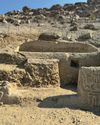
ORIGINS OF PERUVIAN RELIGION
While investigating looters' holes at the site of La Otra Banda in northern Peru's Zaña Valley, archaeologist Luis A. Muro Ynoñán of the Field Museum and the Pontifical Catholic University of Peru spotted carved blocks around seven feet below the surface.
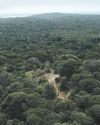
ISLAND OF FREEDOM
Many of the enslaved Africans sent to Brazil beginning in 1549 were from what is now Angola, where one of the most widely spoken languages was Kimbundu.
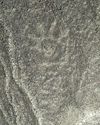
NAZCA GHOST GLYPHS
From the 1940s to the early 2000s, geoglyphs were discovered in the Nazca Desert of southern Peru depicting animals, humans, and other figures at the rate of 1.5 per year.

COLONIAL COMPANIONS
The ancestry of dogs in seventeenth-century Jamestown offers a window into social dynamics between Indigenous people and early colonists.
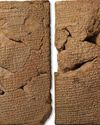
BAD MOON RISING
The British Museum houses around 130,000 clay tablets from ancient Mesopotamia written in cuneiform script between 3200 B.C. and the first century A.D.
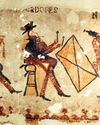
DANCING DAYS OF THE MAYA
In the mountains of Guatemala, murals depict elaborate performances combining Catholic and Indigenous traditions
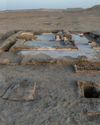
LOST GREEK TRAGEDIES REVIVED
How a scholar discovered passages from a great Athenian playwright on a discarded papyrus

Medieval England's Coveted Cargo
Archaeologists dive on a ship laden with marble bound for the kingdom's grandest cathedrals
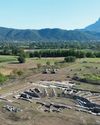
Unearthing a Forgotten Roman Town
A stretch of Italian farmland concealed one of the small cities that powered the empire
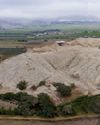
TOP 10 DISCOVERIES OF 2024
ARCHAEOLOGY magazine reveals the year's most exciting finds